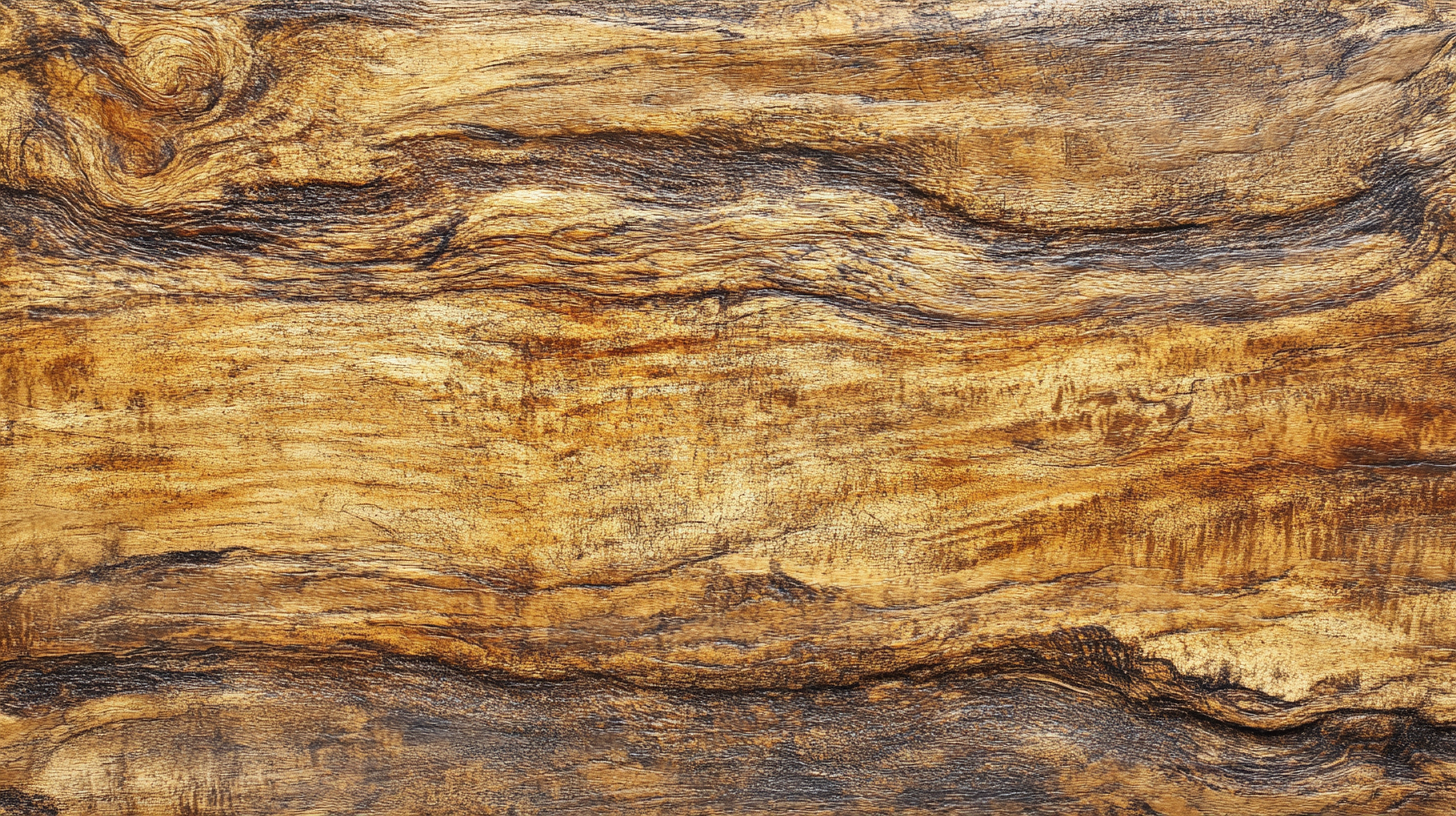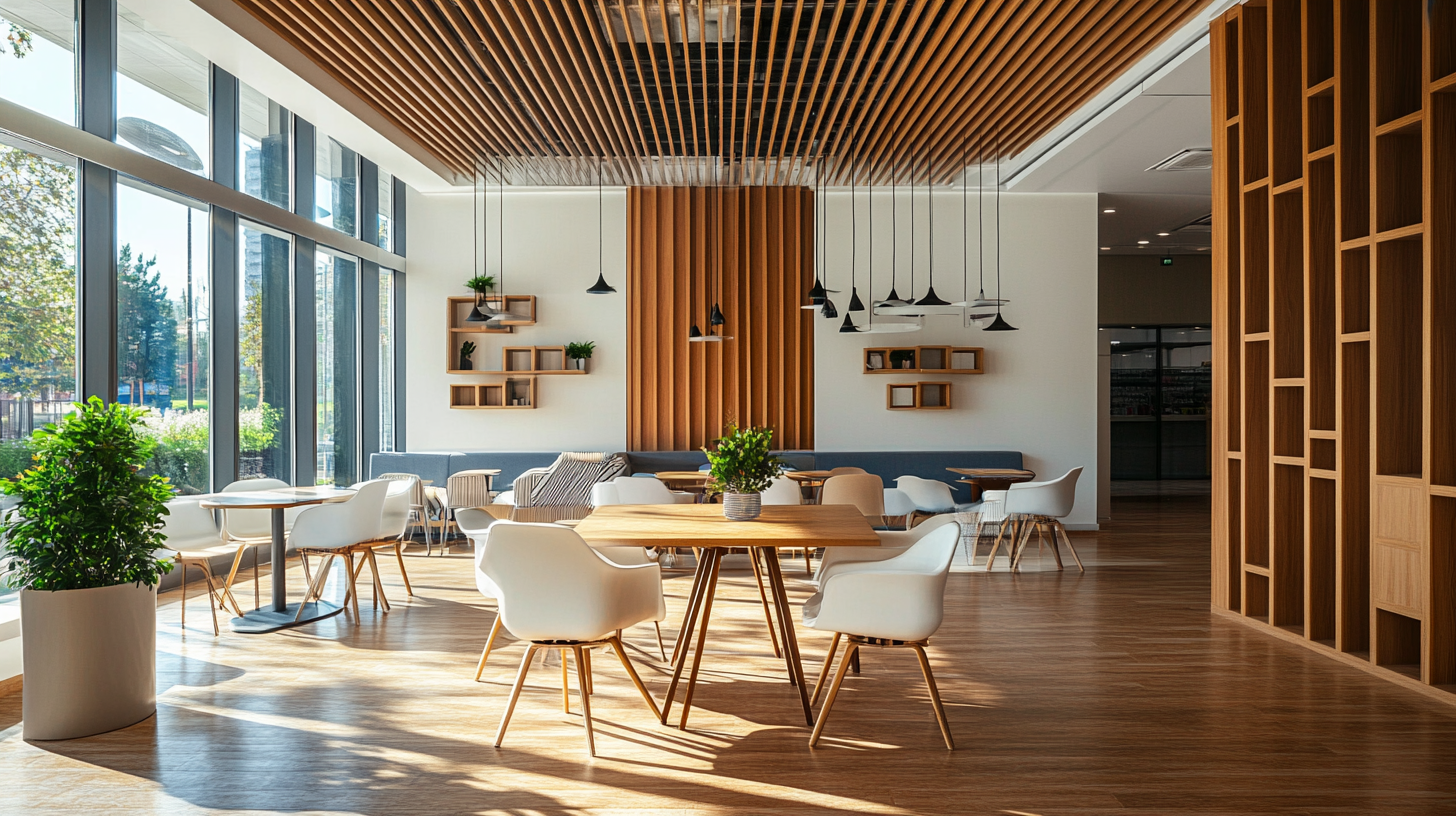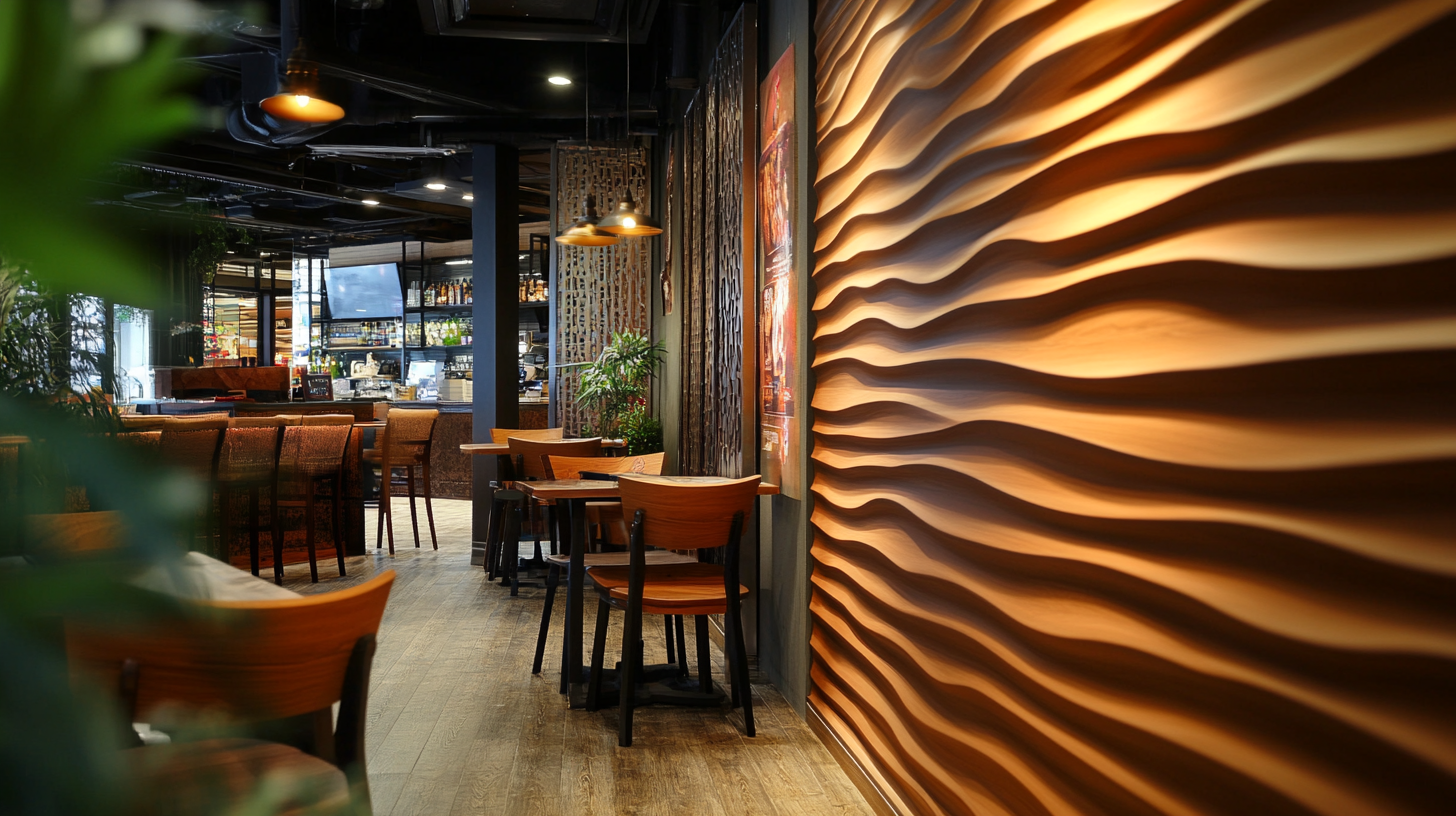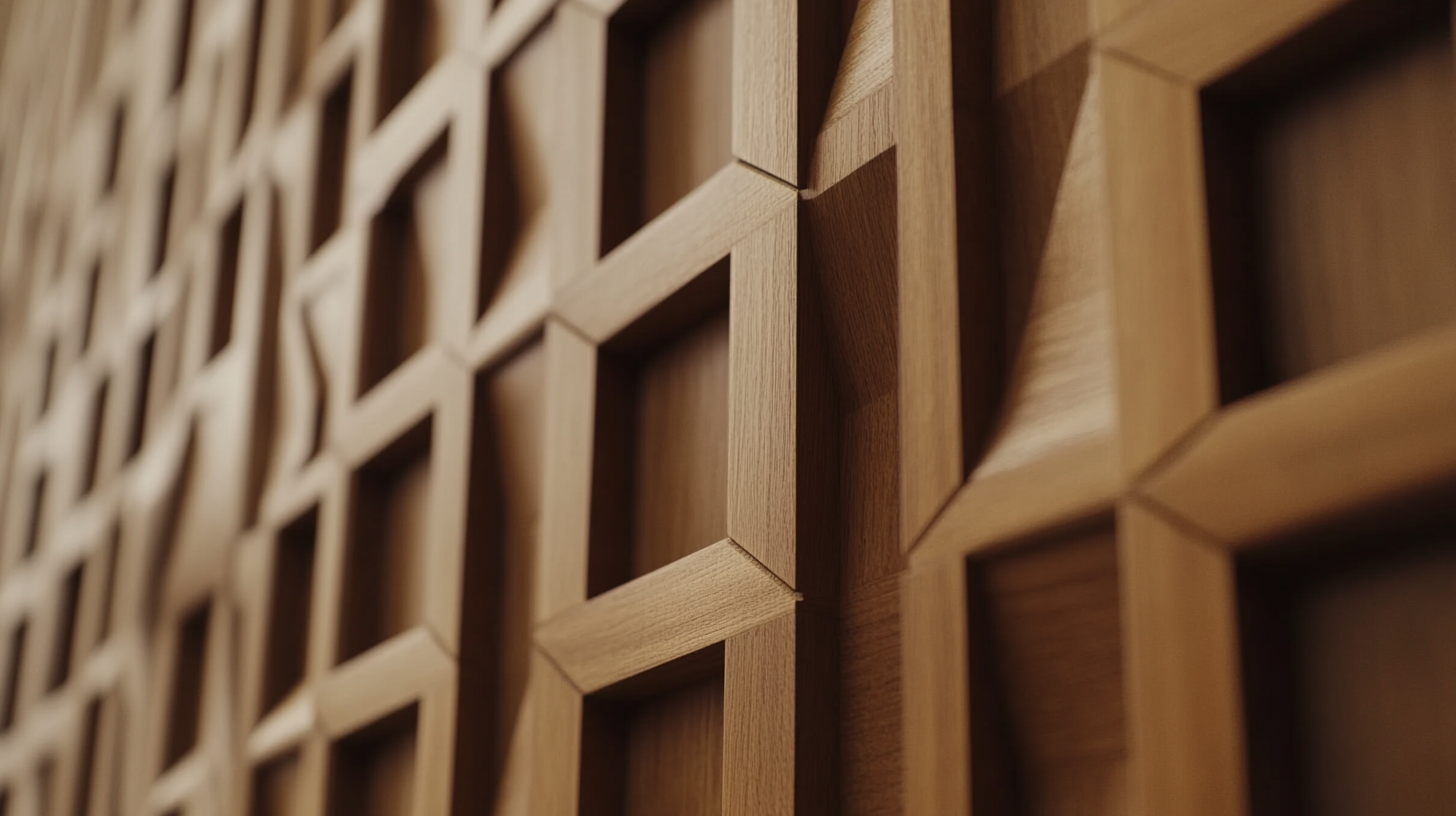
In recent years, the construction and interior design industries have witnessed a remarkable shift towards innovative materials that not only enhance aesthetics but also provide functional benefits. Among these materials, PVC wall panels have emerged as a popular choice for various projects. Characterized by their lightweight, durability, and ease of installation, PVC wall panels are quickly becoming a go-to option for homeowners and contractors alike. Their versatility allows them to be used in a range of settings, from residential bathrooms to commercial spaces, making them an attractive alternative to traditional wall coverings.
Exploring the advantages of using PVC wall panels reveals a multitude of benefits. They offer affordability without compromising on quality, making them an ideal solution for budget-conscious projects. Additionally, their waterproof and easy-to-clean surface makes them suitable for areas exposed to moisture, such as kitchens and wet rooms. As we delve deeper into the numerous benefits and applications of PVC wall panels, it becomes clear that these innovative materials are not just a trend, but a lasting solution for modern construction and renovation needs.

When it comes to choosing materials for construction projects, builders are increasingly leaning towards PVC wall panels due to their cost-effectiveness. These panels provide an economical alternative to traditional materials while offering a range of benefits that enhance both functionality and aesthetics. For projects on a budget, PVC wall panels can significantly reduce overall costs without compromising quality. One of the primary advantages of PVC wall panels is their durability. Unlike traditional materials that may warp, crack, or fade over time, PVC panels are resistant to moisture, mold, and mildew, making them ideal for environments prone to humidity, such as bathrooms and kitchens. This longevity translates into lower maintenance costs and fewer replacements, which is a substantial benefit for builders looking to maximize their investments. Moreover, PVC wall panels are lightweight and easy to install, reducing labor costs and project timelines. The panels can be cut to size without the need for heavy tools, allowing for quick and straightforward installation. This efficiency not only speeds up construction time but also minimizes disruption on-site, making it an attractive option for contractors eager to complete projects ahead of schedule. With such advantages, it’s no surprise that PVC wall panels are quickly becoming a favorite among builders looking for smart, budget-friendly solutions.

When considering materials for wall construction, the durability of PVC wall panels stands out as a compelling reason to incorporate them into your next project. PVC wall panels are known for their long-term performance characteristics, making them a popular choice among builders and contractors. According to recent reports from the International Builders’ Show, durable building materials like PVC not only meet aesthetic demands but also offer significant advantages in terms of lifespan and maintenance. For instance, PVC panels resist moisture and mold, which helps them maintain structural integrity over time compared to traditional materials.
Statistical data highlights that vinyl siding, a product closely related to PVC panels, has been utilized in residential projects since the early 1960s and has seen increased adoption due to its performance metrics. Studies show that insulated vinyl siding can reduce heating costs significantly, sometimes by as much as 20% annually for homeowners, which underscores the overall longevity and energy efficiency offered by such materials. The performance statistics for PVC wall panels mirror these benefits, underlining their ability to withstand harsh environmental conditions without deteriorating.
Moreover, recent scientific insights suggest that continuously insulated precast wall panels are emerging as an effective alternative in modern construction, exhibiting enhancements in energy efficiency and structural durability that further establish the advantages of PVC materials. As more builders embrace these innovations, the projected market growth for PVC panel applications highlights their importance in achieving both quality and value in future construction endeavors.

When it comes to interior design, the aesthetic appeal of PVC wall panels cannot be overstated. These innovative panels offer a versatile range of styles, colors, and textures, making them an ideal choice for a variety of projects. Homeowners and designers alike appreciate the ability to customize and adapt the look of a space without the need for extensive renovations. Whether you're aiming for a modern, sleek finish or a warm, rustic feel, PVC wall panels can effortlessly fulfill your design vision.
One of the key advantages of PVC wall panels is their design flexibility. Unlike traditional materials, PVC panels can mimic the appearance of wood, stone, or even elaborate wallpaper patterns, allowing for creative freedom. They can be installed in various configurations, whether as a striking feature wall or as consistent paneling throughout a room. This adaptability makes them suitable for both residential and commercial spaces, enhancing the visual quality without compromising functionality.
Moreover, the wide array of options available in PVC wall panels means that finding the perfect fit for a project is easier than ever. From bold colors that make a statement to subtle, textured finishes that add depth to a room, there's something for every taste. This extensive selection not only helps in achieving a unique aesthetic but also ensures that the final look aligns perfectly with the overall design theme of the space. By incorporating PVC wall panels into your next project, you can achieve a beautiful, customized environment that meets both your aesthetic desires and functional needs.

The growing trend towards sustainable building practices has brought materials like PVC wall panels to the forefront of eco-friendly construction. Unlike traditional wall coverings, PVC panels are designed to offer durability and versatility while minimizing environmental impact. Made from polyvinyl chloride, these panels are not only lightweight but also recyclable, reducing the burden on landfills. Their manufacturing process has improved significantly, leading to lower emissions and energy consumption compared to other building materials.
One of the standout features of PVC wall panels is their resistance to moisture and mold, which enhances indoor air quality and promotes healthier living spaces. This attribute is particularly beneficial in areas prone to humidity, such as bathrooms and kitchens. Moreover, the longevity of PVC materials means that they require less frequent replacement, further decreasing resource consumption over time. By choosing PVC wall panels, builders and homeowners can adopt a more sustainable approach without sacrificing aesthetic appeal or functionality.
Furthermore, the ease of installation and maintenance associated with PVC wall panels contributes to their sustainability. Since they can be installed over existing wall surfaces, they reduce the need for extensive demolition and waste. Their smooth surface also requires minimal cleaning, further decreasing the need for harsh chemical cleaners that can harm the environment. Ultimately, using PVC wall panels aligns with the modern ethos of fostering sustainable practices while creating beautiful and functional spaces.
When embarking on a new construction or renovation project, one critical aspect that can often be overlooked is the choice of wall materials. PVC wall panels have increasingly become a favored option due to their straightforward installation process and low maintenance requirements. This not only aids in saving valuable time but also significantly reduces labor costs, making them an attractive choice for builders and homeowners alike.
Installation of PVC wall panels is remarkably easy and usually requires only basic tools. Unlike traditional wall materials that often need extensive pre-installation preparation, PVC panels can be quickly cut to size and fitted with minimal fuss. This expedited process allows projects to progress rapidly, meaning that contractors can take on more work within shorter timelines. Additionally, the lightweight nature of the panels makes them easier to handle, reducing the physical strain on laborers and minimizing the risk of injury.
Maintenance is another area where PVC wall panels excel. Their smooth, non-porous surface means they are resistant to mold, mildew, and stains, requiring little more than a simple wipe-down to keep them looking pristine. Compared to paint or wallpaper, which may require frequent touch-ups or replacements, PVC panels offer a long-lasting solution that saves both time and money over the years. By opting for PVC wall panels, you not only streamline the installation process but also ensure that upkeep is as straightforward as possible, allowing you to focus on enjoying your space rather than worrying about its maintenance.
